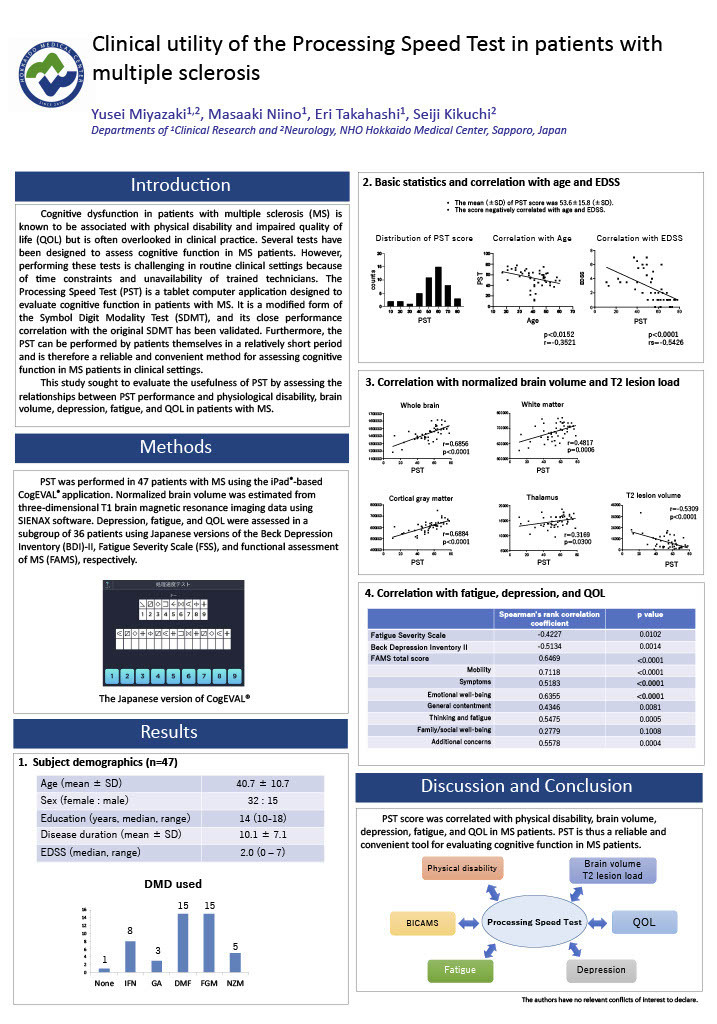Clinical utility of the Processing Speed Test in patients with multiple sclerosis
Abstract
Background:
Cognitive dysfunction in patients with multiple sclerosis (MS) is known to be associated with physical disability and impaired quality of life (QOL) but is often overlooked in clinical practice. Several tests have been designed to assess cognitive function in MS patients. However, performing these tests is challenging in routine clinical settings because of time constraints and unavailability of trained technicians. The Processing Speed Test (PST) is a tablet computer application designed to evaluate cognitive function in patients with MS. It is a modified form of the Symbol Digit Modality Test (SDMT), and its close performance correlation with the original SDMT has been validated. Furthermore, the PST can be performed by patients themselves in a relatively short period and is therefore a reliable and convenient method for assessing cognitive function in MS patients in clinical settings.
Objectives:
This study sought to evaluate the usefulness of PST by assessing the relationships between PST performance and physiological disability, brain volume, depression, fatigue, and QOL in patients with MS.
Methods:
PST was performed in 43 patients with MS using the iPad®-based CogEVAL® application. Brain volume was estimated from three-dimensional T1 brain magnetic resonance imaging data using SIENAX software. Depression, fatigue, and QOL were assessed in a subgroup of 30 patients using Japanese versions of the Beck Depression Inventory (BDI)-II, Fatigue Severity Scale (FSS), and functional assessment of MS (FAMS), respectively.
Results:
The mean PST score was 53.2 ± 16.4 (SD). PST score was negatively correlated with expanded disability status score (rs = −0.67, p < 0.0001), and was positively correlated with total brain volume (rs = 0.70, p < 0.0001) and cortical gray matter volume (rs = 0.78, p < 0.001). Additionally, PST score was negatively correlated with BDI-II (rs = −0.52, p = 0.0031) and FSS (rs = −0.37, p=0.045), and was positively correlated with total FAMS score (rs = −0.60, p = 0.0005).
Conclusion:
PST score was correlated with physical disability, brain volume, depression, fatigue, and QOL in MS patients. PST is thus a reliable and convenient tool for evaluating cognitive function in MS patients.

